Champions of Change Blog
The CLEO Project on Climate: Bridging the Divide Between Science and Society!
Posted by on April 30, 2013 at 12:25 PM EDT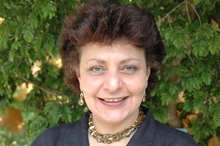 Caroline Lewis is being honored as a Champion of Change for her efforts as a Community Resilience Leader.
Caroline Lewis is being honored as a Champion of Change for her efforts as a Community Resilience Leader.
I embraced this goal with tremendous optimism when I created the CLEO Project on Climate. Now, some three years later, things have changed. Almost on a daily basis, I must guard my energy and confidence against being sapped, as I work in earnest along this recklessly slow road to my desired end. The good news is that thousands of individuals and institutions have this same goal and have invested mightily in education and engagement efforts. The bad news is we still seem to be swimming upstream. It is time to turn this ship. This White House recognition is a tremendous honor, but it is the opportunity to spur meaningful change that truly excites me.
In 2010, we founded the CLEO Institute to promote real change on a big scale. This small but mighty non-profit, based in Pinecrest Gardens in South Florida, advances environmental literacy and civic engagement by developing initiatives that can be scaled and replicated. We focus on Creative Learning and Engagement Opportunities (hence, CLEO) to promote and celebrate participation by broad audiences. This means providing multiple opportunities for engagement by intergenerational, interdisciplinary, and socially diverse audiences. The CLEO Project on Climate (CPOC) is designed to trigger community conversations within varied social, cultural, economic, academic, religious and political gatherings. It also provides opportunities for deeper learning through basic and advanced climate education and communication training.
Phases I and II of the CPOC encourage participants to find and share their voices on climate change issues. We have already logged well over a thousand written and videotaped Phase I responses to the Project Question: What is climate change all about, and what’s my role? For Phase II, CLEO partners with scientists, educators and communicators to train hundreds of individuals as part of the Empowering Capable Climate Communicators Series. Trainees then join CLEO’s online Phase II Speakers Network and develop their own outreach plans. Additionally, the CPOC includes climate-related forums, film screenings, science cafes, panel discussions, showcases and contests. Through these related Phases and events, we mobilize schools, colleges, businesses, organizations, and government offices to participate in fact-driven dialogues describing what we know about climate change, the forces that likely affect it, and scalable solutions.
We are proud of the CLEO Project on Climate. It uses the powerful vehicles of both formal and informal education to mainstream climate science and build climate literacy. The CPOC is inclusive and celebratory, and the use of web and social media is a key contributor to motivating very large, diverse audiences. And the public response has been extraordinary. We work with principals, teachers, college professors, students, elected officials, artists, bankers, doctors, lawyers, civic and community leaders, and concerned citizens. We believe an educated citizenry is better able to make personal changes and to respond to robust efforts toward climate resilience. In our region, Miami-Dade County’s GreenPrint and the four-county Southeast Florida Regional Climate Compact action plan are excellent examples that need support from a more engaged and informed public. Climate science is serious and complicated, and becoming climate-literate is a journey.
I expect climate change will be THE defining issue of this century, and many centuries henceforth, with respect to economic, environmental, and humanitarian vulnerability. Climate science desperately needs honest attention so we can invest in immediate, sweeping, sustained action towards mitigation and adaptation efforts. And we need this YESTERDAY! How do we make this happen? Each of us should embrace our unique power to influence others and to champion change. I know I blaze through life armed with the surety that we influence and are influenced by others, sometimes when we least expect it. Dare I dream? I must. I believe we will turn this ship, and efforts like the CLEO Project on Climate help us become agents of change. I believe we will influence our leaders and each other. I believe our leaders, on the right and on the left, together with everyone in between, will steer us in the right direction, not further into harm's way. I believe this, and I want you to believe this, too.
I accept this honor with the full knowledge that we all stand on the shoulders of other champions. I am fortunate that so many have shaped, supported and inspired me, and I celebrate them all.
Please visit our website at www.CLEOInstitute.org.
Caroline Lewis is the founder and executive director of the CLEO Institute at Pinecrest Gardens.
Learn more aboutOcean, Stars And Daylight
Posted by on April 30, 2013 at 11:57 AM EDT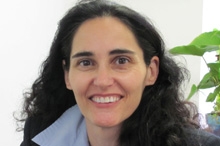 Rebecca Rubin is being honored as a Champion of Change for her efforts as a Community Resilience Leader.
Rebecca Rubin is being honored as a Champion of Change for her efforts as a Community Resilience Leader.
For me, my commitment to building resilient communities is really pretty simple. It's all about what we can do to minimize humankind's negative impacts on nature and reinforce the positive ones. This is the surest and most effective pathway, not just to a healthier planet, but also to a greener and more resilient economy. My own journey has been one of realizing that the natural world is the beginning and the end of everything that matters on this planet. After the natural world, everything else follows.
This approach has translated readily to my work life, where for the past twelve years, I have been privileged to be the Founder, President, and CEO of Marstel-Day Environmental Consulting, LLC – a name that means Ocean, Stars and Daylight. We provide clients with concepts, strategies, and plans of action for landscape-scale conservation of natural resources, climate adaptation, energy planning and "net zero" strategies, water security, smart growth and transportation, and the management of issues relating to encroachment pressures on government and private lands, open space, and habitat. Our company was among the first small businesses ever to write both a company-wide Climate Action Plan and a Corporate Social Responsibility Report; we were also the first company in the nation to obtain certification as a service provider under P391, the National Standards Foundation general sustainability protocol.
At the same time, we have also made our commitment to helping economically depressed communities regain their footing via our commitment to the HUBZone program, a federal program under which we locate our principal office – and thirty five percent of our employees – in areas of low income and high unemployment.
Our journey to a deeper shade of green for ourselves and our clients, and our demonstrated community involvement, especially to areas of low income and high unemployment, form the backbone of Marstel-Day’s commitments to a more resilient community. We never stop looking for new initiatives and have recently launched our Climate, Environment and Readiness (CLEAR) plan in partnership with a wide variety of stakeholders to help our region in Virginia undertake climate adaptation and mitigation measures.
Rebecca R. Rubin is the Founder, President, and CEO of Marstel-Day, LLC.
Learn more aboutEcolibrium
Posted by on April 30, 2013 at 11:36 AM EDT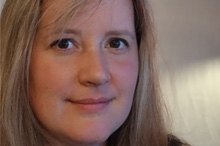 Jodi Slick is being honored as a Champion of Change for her efforts as a Community Resilience Leader.
Jodi Slick is being honored as a Champion of Change for her efforts as a Community Resilience Leader.
Disasters are indiscriminate foes. For individuals, disasters don’t care if you have been diagnosed with cancer, are underwater on your mortgage, or plan to retire next week. For communities, disasters don’t wait until you’re ready, and they don’t come with an instruction manual.
I’ve witnessed the pain and frustration of disaster victims and recognize the years of difficult rebuilding ahead in our communities. If we are to build resilient communities, we need design thinking, integrated strategies, and strong partnerships to both mitigate the causes and adapt to the effects of climate change.
Climate change is real. The costs are high. The time to invest in resiliency is now.
My climate resiliency story began in 2008 when I attended an emergency meeting of community organizations to discuss the “heat or eat” dilemma many in our community faced during the winter. With an old housing stock, a very cold climate and an ever expanding energy affordability gap, it seemed that just triaging resources for the upcoming winter wasn’t enough.
I realized we needed to address the current emergency and also create integrated solutions that would make us more resilient to future energy price fluctuations and economic downturns. At that time, I was Executive Director of a social enterprise that led the implementation of green standards in low-income homes, and we were working on a national demonstration project that incorporated solar thermal systems into deep energy retrofits of foreclosed and blighted properties.
As much as I took pride in the work we were doing, I was bothered by the fact that our impact would be ten times greater if we were also increasing investments in weatherization and insulation for leaky homes. That fall, I assembled a cross-sector collaborative that created the Duluth Energy Efficiency Program (DEEP) and in 2011 founded Ecolibrium3 to administer DEEP and develop other community sustainability initiatives.
Ecolibrium3’s DEEP program helps residents of all-income levels by assessing their homes, prioritizing improvements, bundling available financial resources, contracting with trained and qualified companies, and conducting quality assurance through our one-stop shop. In our first two years, we helped more than 600 households complete efficiency upgrades, saving an average of $646 annually, and reducing GHG emissions by four tons per home. Over 65 percent of our participants complete advanced energy efficiency measures. DEEP is nationally recognized as an innovative, community-scale model for residential energy efficiency.
Building the DEEP process, however, is only the first part in our two-part story of community climate resiliency. The second part began after a 500-year rain event flooded the City of Duluth and seven counties in northern Minnesota and Wisconsin last summer. Ecolibrium3 had no experience in disaster recovery, but it was clear to me that the processes, capacity and cross-sector partnerships we built to bring energy efficiency to scale were the type of resources a community would need to rebuild. Without a FEMA Individual Assistance Declaration, and the infrastructure and funding that would have come with it, a local solution to provide recovery infrastructure became even more important.
When the Ordean Foundation chose to invest in flood recovery for low-income households, we rapidly retooled DEEP to meet these needs. Ecolibrium3 began reconstruction management weeks ahead of federal and state programs with a two-step process designed to dovetail with other disaster assistance. First, we helped families meet immediate winter preparedness needs of electricity, hot water and energy efficient furnaces using a bridge loan while residents waited for SBA or state assistance.
Once traditional disaster assistance was received and the bridge loan paid back, we reinvested the funds as a grant to complete advanced energy efficiency and flood mitigation measures that could not be covered by the disaster loans. Ecolibrium3’s flood-recovery model established standards for rebuilding that emphasizes energy efficiency and is saving some households more than $2,000 a year on heating costs. In addition, applying our third-party contract management system and extensive list of vetted contractors resulted in quicker rebuilding while protecting residents from post-disaster fraud.
Through Ecolibrium3’s work, I’ve learned that disaster recovery is a long and messy process. We still have families in need and it is essential that we find additional resources to help our region recover. It is equally important that we continue to invest in resilience by building community capacity and stronger systems before disasters strike.
Our climate mitigation and adaptation work would not have been possible without the dedication of the Ecolibrium3 staff and board, collaboration with the City of Duluth, support from the Ordean Foundation, Duluth Superior Area Community Foundation, Duluth Local Initiatives Support Corporation, US EPA Climate Showcase Communities, US DOE, MN Division of Energy Resources, MN Housing Finance Agency, and Freshwater Future, as well as the strong utility conservation programs available in our community through Minnesota Power and Comfort Systems.
Jodi Slick is Founder and CEO of Ecolibrium3.
Learn more aboutHealthy Soils, Happy Communities
Posted by on April 30, 2013 at 11:20 AM EDT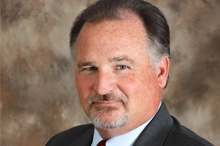 Fred Yoder is being honored as a Champion of Change for his efforts as a Community Resilience Leader.
Fred Yoder is being honored as a Champion of Change for his efforts as a Community Resilience Leader.
I have always been a firm believer that many of the challenges we face today can be solved by being smarter and more efficient. Too many times we look for short-term fixes and later deal with the long-term ramifications caused by our decisions.
A significant part of our country's inability to find solutions to problems is our lack of willingness to work together. Many great ideas get thrown away simply because they are perceived to be partisan. Science is not perfect, yet it is probably the best vehicle we can use today to decide important matters.
It is clear that our weather patterns have changed over the years, producing bigger catastrophic events, such as floods and droughts, and extreme higher and lower temperatures as well. But while we see these things take place, all that some can do is assign blame for what is happening. It is time to get over what and who is responsible for the changes taking place and do what we can to mitigate the effects of the changes.
American agriculture has demonstrated the ability to adapt to change over the years by being able to produce abundant food, feed, fiber, and fuel in ways that are quite different than previous practices. We are conserving our water and soils by adapting conservation methods, utilizing new and more resilient genetics, and reducing the likelihood of nutrients being lost by altering ways in which we apply them.
But there is much more that can be done to enhance the quality of our soils. Cover crops and new rotations can enrich them with more microbial generation. Healthy soils greatly increase agricultural productivity and can mitigate greenhouse gases through sequestration by the ton.
In this day and age when government dollars are scarce, it is imperative that we do not backslide on the progress we have made thus far. There are plenty of incentives to continue to do the right things if we can recognize the benefits of what we are doing.
We must all work together to identify what is occurring and take the necessary steps to ensure we can indeed sustainably produce enough food to satisfy a hungry world. At the same time, we must provide those ecosystem services that are so valuable to society, which will ensure the world will be a better place for our children and grandchildren.
Fred Yoder is currently involved with the 25 x '25 Alliance.
Learn more aboutHope and Sustainability for Our Coastal Communities
Posted by on April 30, 2013 at 11:02 AM EDT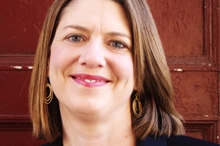 Rebecca Templeton is being honored as a Champion of Change for her efforts as a Community Resilience Leader.
Rebecca Templeton is being honored as a Champion of Change for her efforts as a Community Resilience Leader.
I grew up in a bayou community in south Louisiana where so much of daily life centers around one of our nation’s most productive estuaries. I remember taking shelter as a child in my grandparent’s home as a hurricane approached our community. My maw maw (grandmother) sat me down and explained why I was safe and told me about the lines of protection we had from the approaching hurricane.
She told me that before the hurricane reached our home, it first had to travel over the barrier islands, which would slow down the hurricane. She then told me that the marsh was like a sponge that soaked up water and energy from the hurricane. Only after the hurricane passed over these parts of our environment would it reach us as a weaker version of what it was.
While I may not have understood concepts that mean so much to our lives today like climate change, sea level rise, and storm surge, I knew, even from an early age, that a healthy environment helped to protect me and my family.
Fast forward to today, when climate change, sea level rise, and subsidence causes Louisiana to lose 16 square miles of wetlands, our natural flood protection, every year. This is roughly a football field every 38 minutes, much of it in my beloved Terrebonne Parish. According to NOAA scientists, this is not just the highest rate of land loss in the United States but possibly the globe. All of this is further complicated by living in an area facing enormous social vulnerability due to high poverty, where families have limited means to rebuild after a disaster.
We continue to experience stronger and more frequent extreme weather in southern Louisiana, as evidenced by Hurricanes Katrina, Rita, Gustav, Ike and Isaac. Our community has not only had to find ways to rebuild lives, businesses, and homes, but also to adapt to a more dangerous and vulnerable future. More homes in my community have flooded from what were once considered weak hurricanes and tropical storms.
When I was a young girl, I remember the vastness of the marsh land behind our family home. Now there are just clumps of marsh surrounded by water. It is evident that the habitat is changing. Where we once caught bass, a freshwater fish, my son now catches red fish, a saltwater fish. The environment has changed. There is less of it around me, and the impact of this is huge. These are big challenges, each too large to tackle alone. They require collective action as a community.
As our wetlands vanish, so do our culture, communities, livelihoods, and the natural hurricane storm protection provided by our coast. It is vital to acknowledge that the impacts of coastal land loss are occurring not because we live in or moved to an inherently flawed environmental system, but because our environment has been altered and manipulated. We are suffering the consequences of global issues like climate change and national issues like Mississippi River flood protection and dredging of canals for energy and commerce.
We founded Bayou Grace Community Services to engage both our local and national community to advocate for solutions. We want our communities to move from vulnerability and possible extinction to survival, resilience and sustainability. Louisiana coastal land loss affects not only our local communities and our state. It is an environmental issue that impacts the entire nation.
I joined Bayou Grace in 2009 and now serve as its Executive Director. After Hurricane Katrina in 2005, Bayou Grace was formed with the mission to restore the Barataria-Terrebonne Estuary by mobilizing participants in restorative projects, advocacy, and education. Bayou Grace participants develop a complex understanding of Louisiana coastal land loss and how restoration benefits the entire nation.
Bayou Grace’s Louisiana Estuary Experience, a co-operative five day volunteer program with the Barataria-Terrebonne National Estuary Program hosts over 250 volunteers annually. Volunteers aid in the restoration of our environment and participate in classroom/laboratory education at the Louisiana University Marine Consortium. Program participants educate others and advocate for restoration after involvement with Bayou Grace.
Volunteers also engage with local community members at community dinners via our Building Community Resilience through Community Dinners project. These community dinners are an opportunity for local residents to engage with government and NGO coastal restoration decision makers and leaders. As one local resident writes:
"…. I am a lifelong resident of Dulac, Louisiana. … [Bayou Grace] keeps our Bayou community informed on the many issues concerning coastal restoration and protection through their community dinners. I and other community people feel more informed on issues affecting our Bayou than ever before through attending these dinners."
Both local residents and national volunteers help create advocacy tools through our Why Should We Save Coastal Louisiana? photo project. Since 2010, over 800 local and national participants have been photographed with their answers to the project question: “Why should we save coastal Louisiana?” Many of these advocacy photos have been exhibited at art studios and museums, and have been used to create a project companion book, a book we now work to get into the hands of government and agency leaders who can have an impact on decisions made about Louisiana coastal restoration.
Bayou Grace and other coastal partners participate on Oxfam America’s Coastal Communities Initiative Campaign. We attend parish, state and federal meetings and conferences and educational workshops. This, combined with outreach, enables Bayou Grace to gain community, scientific and academic perspectives on land loss and restoration and to develop advocacy talking points in the best interest of our communities.
I am deeply honored to be selected as a Community Resilience Leader Champion of Change. This award represents not only my work, but the work of every out-of-state volunteer, every staff member and every community resident who has chosen to become engaged in the issue of Louisiana coastal land loss and restoration.
My hope is that all of our work will lead to thoughtful, holistic restoration and protection measures that balance the needs of our local community, their livelihoods and our environment. The lessons we learn in coastal Louisiana are a chance for our nation to prepare and learn how to tackle these challenges as more and more coastal communities are impacted by a changing climate and rising seas.
Rebecca Templeton is the Executive Director of Bayou Grace Community Services.
Learn more aboutLimitless
Posted by on April 30, 2013 at 10:41 AM EDT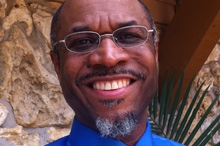 Patrick Barnes is being honored as a Champion of Change for his efforts as a Community Resilience Leader.
Patrick Barnes is being honored as a Champion of Change for his efforts as a Community Resilience Leader.
I am truly honored to be recognized by the White House as a Champion of Change Community Resiliency Leader. Early in my career as an environmental geologist working in New York and New Jersey, I was struck by the fact that the vast majority of the contaminated sites I worked on were located in poor or minority communities.
I could not help but notice that the employees of consultants and contractors doing the environmental assessment and cleanup work did not look like the residents of the area, who often lived directly adjacent to the source of pollution. These contractors would rarely employ local residents and instead bring employees in from other areas. This dichotomy grew even starker as my career took me to environmental projects in North Carolina, Florida, Georgia, and Louisiana.
In 1994, shortly after establishing Barnes, Ferland and Asscociates, Inc., also known as BFA Environmental, in Orlando, Florida, I read Dumping in Dixie by Robert Bullard. The book chronicles the tremendous disparities that exist in the siting of hazardous waste facilities, landfills, and industrial plants, and how such facilities are routinely placed in poor and minority communities.
Also in 1994, President Clinton signed Executive Order 12898, formally mandating that federal agencies make achieving environmental justice a part of their mission. During that time, I decided the most effective approach to achieve environmental justice at the grassroots level would be for firms that are involved in environmental assessment and remediation to be actively engaged in teaching the residents of impacted communities about the environment and how to safeguard and protect it.
Additionally, the results would be maximized if much needed job training were provided to at-risk members of these communities in conjunction with this outreach. In essence, the infrastructure repair and environmental restoration needs—which are greatest in underserved communities—represent a great opportunity for renewal. Residents of such communities should have the chance for a direct economic benefit from that opportunity.
This issue all came into clear focus for me after the destruction caused by Hurricanes Katrina and Rita along the Gulf Coast. These disasters exposed the tremendous lack of proper environmental infrastructure in poor communities. After BFA Environmental successfully completed a large contract on behalf of the Army Corps of Engineers in the aftermath of the hurricanes, it was time to take a decisive step.
Drawing from the lessons of a successful entrepreneurial and engineering business career, in 2006 I established Limitless Vistas, Inc. (LVI), a New Orleans-based nonprofit dedicated to providing entry-level job skills for the environmental industry to at-risk young adults. Since its founding, working primarily through job training grants from the EPA, the Corps Network, and the City of New Orleans and funding from BFA, LVI has trained over 300 young people from New Orleans as environmental technicians.
Trainees obtain a variety of credentials and certifications covering a wide variety of environmental skills including emergency response, asbestos/lead abatement, mold awareness, home energy efficiency auditing, OSHA construction safety and hazardous waste operations, FEMA emergency management, water and wastewater operations, coastal restoration and GIS mapping. The need for a properly trained local population with environmental skills was heightened yet again after the BP Deep Water Horizon oil spill. Billions of dollars will be spent and, by some accounts, 60,000 jobs created to make the Gulf Coast more environmentally resilient as a result of the spill.
Our work has provided disconnected young adults from poor and disadvantaged neighborhoods more direct access to these good jobs. In the process, LVI and BFA have emerged as leading voices along the Gulf Coast. We help organize business leaders involved in coastal restoration and protection projects and speak up for the economic value of investing in adaptation as communities begin to make plans to invest fines from the oil spill. Additionally, we have been advocates for innovative ways to bring together private and public policies to connect the most vulnerable workers to jobs and training in coastal resiliency projects, thus helping to build the socioeconomic strength necessary for communities to adapt to climate change.
In Spring of 2013, Limitless Vistas, BFA Environmental, and Oxfam America launched a coastal restoration job training pilot program further preparing at-risk youth in Louisiana’s coastal communities for jobs in environmental monitoring, surveying, assessment and data collection—a significant part of a number of ongoing and upcoming coastal restoration and protection opportunities projected in Louisiana. This work will leverage efforts by NOAA and EPA in the area.
My personal view is that there cannot be true environmental justice without economic justice. This tremendous need represents a unique opportunity for the residents that were most affected by environmental disaster to obtain meaningful jobs, thus putting them on a path to economic equality. However, navigating the political process and connecting the dots between locally-trained individuals, the contracting process and the potential contractors with the job vacancies is still a difficult task. But, it’s a challenge we are worthy of.
In addition to my work as founder and advisor to Limitless Vistas, I am a professional geologist and President/CEO of BFA Environmental, the largest African-American owned multidiscipline environmental engineering, scientific consulting and surveying firm headquartered in the southeast. We have offices throughout Florida and in New Orleans.
I routinely engage in work consulting on water resource needs of clients across the region designing and managing large-scale coastal resiliency projects including the Biscayne Bay Florida Minimum Flows and Levels Ecological Indicators and Kissimmee River Restoration Program analysis. Both projects were critical to the comprehensive Everglades Restoration program, and to building the resilience of southern Florida.
Over my 27-year career, I have worked extensively in the minority community, and on groundbreaking environmental justice projects. I continue to work with business leaders across the Gulf States, the Nature Conservancy, Oxfam America, and the Corps Network to encourage decision-makers in the Gulf Coast States to invest in large-scale environmental restoration and coastal adaptation that would create jobs and asking for state investment in worker training initiatives tailored to at-risk communities.
Patrick is President/CEO of BFA Environmental.
Learn more about
- &lsaquo previous
- …
- 72
- 73
- 74
- 75
- 76
- 77
- 78
- 79
- 80
- …
- next &rsaquo
White House Blogs
- The White House Blog
- Middle Class Task Force
- Council of Economic Advisers
- Council on Environmental Quality
- Council on Women and Girls
- Office of Intergovernmental Affairs
- Office of Management and Budget
- Office of Public Engagement
- Office of Science & Tech Policy
- Office of Urban Affairs
- Open Government
- Faith and Neighborhood Partnerships
- Social Innovation and Civic Participation
- US Trade Representative
- Office National Drug Control Policy
categories
- AIDS Policy
- Alaska
- Blueprint for an America Built to Last
- Budget
- Civil Rights
- Defense
- Disabilities
- Economy
- Education
- Energy and Environment
- Equal Pay
- Ethics
- Faith Based
- Fiscal Responsibility
- Foreign Policy
- Grab Bag
- Health Care
- Homeland Security
- Immigration
- Innovation Fellows
- Inside the White House
- Middle Class Security
- Open Government
- Poverty
- Rural
- Seniors and Social Security
- Service
- Social Innovation
- State of the Union
- Taxes
- Technology
- Urban Policy
- Veterans
- Violence Prevention
- White House Internships
- Women
- Working Families
- Additional Issues

